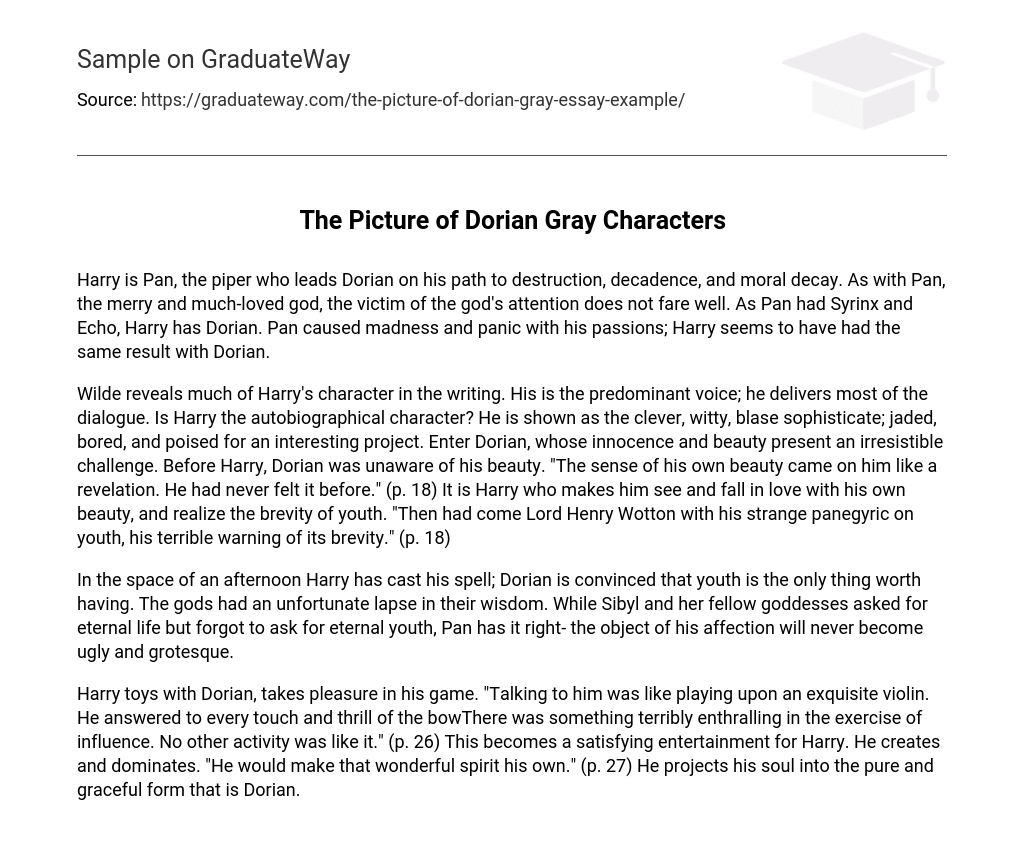Harry is Pan, the piper who leads Dorian on his path to destruction, decadence, and moral decay. As with Pan, the merry and much-loved god, the victim of the god’s attention does not fare well. As Pan had Syrinx and Echo, Harry has Dorian. Pan caused madness and panic with his passions; Harry seems to have had the same result with Dorian.
Wilde reveals much of Harry’s character in the writing. His is the predominant voice; he delivers most of the dialogue. Is Harry the autobiographical character? He is shown as the clever, witty, blase sophisticate; jaded, bored, and poised for an interesting project. Enter Dorian, whose innocence and beauty present an irresistible challenge. Before Harry, Dorian was unaware of his beauty. “The sense of his own beauty came on him like a revelation. He had never felt it before.” (p. 18) It is Harry who makes him see and fall in love with his own beauty, and realize the brevity of youth. “Then had come Lord Henry Wotton with his strange panegyric on youth, his terrible warning of its brevity.” (p. 18)
In the space of an afternoon Harry has cast his spell; Dorian is convinced that youth is the only thing worth having. The gods had an unfortunate lapse in their wisdom. While Sibyl and her fellow goddesses asked for eternal life but forgot to ask for eternal youth, Pan has it right- the object of his affection will never become ugly and grotesque.
Harry toys with Dorian, takes pleasure in his game. “Talking to him was like playing upon an exquisite violin. He answered to every touch and thrill of the bowThere was something terribly enthralling in the exercise of influence. No other activity was like it.” (p. 26) This becomes a satisfying entertainment for Harry. He creates and dominates. “He would make that wonderful spirit his own.” (p. 27) He projects his soul into the pure and graceful form that is Dorian.





